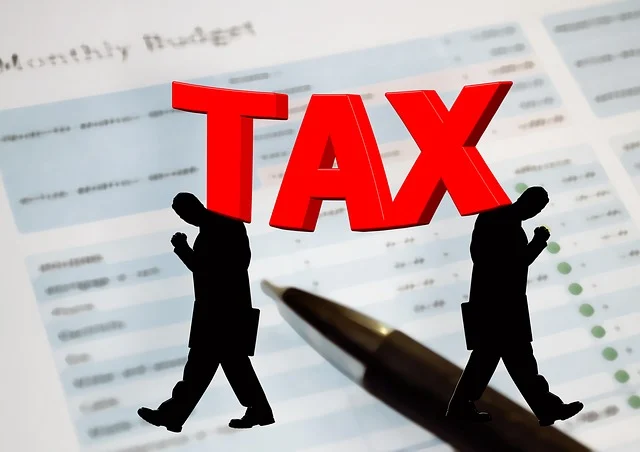Income Tax Rates in Belgium Explained

Belgium is known for having one of the highest income tax rates in Europe, but its progressive tax system ensures that individuals are taxed based on their earnings. Understanding how income taxes work in Belgium is essential for residents, expats, and anyone planning to work or invest in the country. Below is a comprehensive explanation of Belgium’s income tax rates, including key components like personal income tax, social security contributions, and deductions.
1. Overview of the Belgian Tax System
Belgium operates a progressive tax system , meaning that higher earners pay a larger percentage of their income in taxes. The tax rates increase as your taxable income rises. Taxes are collected by both federal and regional authorities, and additional local taxes may apply depending on where you live.
Key Features :
- Progressive Rates : Income tax rates range from 25% to 50% , depending on your taxable income.
- Social Security Contributions : Employers and employees contribute to social security funds, which fund healthcare, pensions, and unemployment benefits.
- Tax Deductions and Allowances : Various deductions and allowances reduce your taxable income, lowering your overall tax burden.
2. Personal Income Tax Rates (2023)
Belgium’s personal income tax is divided into several brackets, with rates applied progressively. Here’s the breakdown of the federal income tax rates for 2023:
| Taxable Income (€) | Tax Rate (%) |
|---|---|
| Up to €13,970 | 25% |
| €13,971 – €24,840 | 40% |
| €24,841 – €42,370 | 45% |
| Over €42,370 | 50% |
- Example : If your taxable income is €50,000, the first €13,970 will be taxed at 25%, the next €10,870 (€24,840 – €13,970) at 40%, the following €17,530 (€42,370 – €24,840) at 45%, and the remaining amount above €42,370 at 50%.
3. Regional Taxes
In addition to federal income tax, residents of certain regions must pay regional surcharges on their income. These vary depending on whether you live in Flanders, Wallonia, or Brussels.
- Flanders : No regional tax.
- Wallonia : A regional tax of 5.5% applies to income exceeding €13,970.
- Brussels : A regional tax of 6.75% applies to income exceeding €13,970.
These surcharges are calculated after the federal income tax has been determined.
4. Social Security Contributions
Both employers and employees are required to contribute to Belgium’s social security system. These contributions fund healthcare, pensions, unemployment benefits, and other social services.
- Employee Contributions : Typically range from 13.07% to 13.94% of gross salary, depending on your employment type.
- Employer Contributions : Employers contribute an additional 25-30% of an employee’s gross salary.
Self-employed individuals also pay social security contributions, but the rates differ based on their profession and income level.
5. Tax-Free Allowances
Belgium offers several tax-free allowances to reduce your taxable income:
- Personal Allowance : Every taxpayer receives a basic tax-free allowance of approximately €9,210 annually (2023 figures).
- Dependent Allowances : Additional allowances are available for dependents, such as children or elderly relatives.
- Other Deductions : Expenses like mortgage interest, childcare costs, and commuting expenses can be deducted from your taxable income.
6. Special Tax Regimes
Belgium offers some favorable tax regimes for specific groups:
a. Expatriate Tax Regime
Highly skilled foreign workers and executives may qualify for a special tax regime that exempts part of their income from taxation. This includes:
- A 30% tax-free allowance on gross income for up to five years.
- Exemption from taxation on certain relocation expenses.
b. Non-Resident Taxation
Non-residents who earn income in Belgium (e.g., through employment or investments) are subject to Belgian income tax but may benefit from reduced rates under double taxation treaties.
7. Wealth Tax and Other Levies
While Belgium does not impose a traditional wealth tax, there are other levies to consider:
- Municipal Taxes : Local municipalities charge additional taxes on income, typically ranging from 0% to 9% .
- Crisis Contribution : A temporary surcharge of 4% applies to income exceeding €13,970.
8. Filing Your Taxes
Belgian residents must file an annual tax return (aangifte/a déclarer ) by June 30th of the following year. You can file online via the government portal or submit a paper form.
- Joint vs. Individual Filing : Married couples can choose to file jointly or separately, depending on their financial situation.
- Deadlines : Extensions may be granted for complex cases, but penalties apply for late submissions.
9. Example Calculation
Let’s calculate the total tax liability for a single resident earning €50,000 annually in Brussels:
- Federal Income Tax :
- €13,970 × 25% = €3,492.50
- €10,870 × 40% = €4,348.00
- €17,530 × 45% = €7,888.50
- €7,630 × 50% = €3,815.00
Total Federal Tax : €19,544
- Regional Tax (Brussels, 6.75%) :
- €36,030 (income above €13,970) × 6.75% = €2,432.03
- Social Security Contributions :
- €50,000 × 13.07% = €6,535
- Total Tax Liability :
- Federal Tax: €19,544
- Regional Tax: €2,432.03
- Social Security: €6,535
Grand Total : €28,511.03
10. Tips to Minimize Your Tax Burden
- Take Advantage of Deductions : Claim all eligible deductions, such as mortgage interest, donations, and professional expenses.
- Use Tax-Free Allowances : Ensure you’re benefiting from personal and dependent allowances.
- Plan Investments Wisely : Consider tax-efficient investment options, such as pension savings plans.
- Consult a Tax Advisor : A professional can help optimize your tax strategy and ensure compliance.



